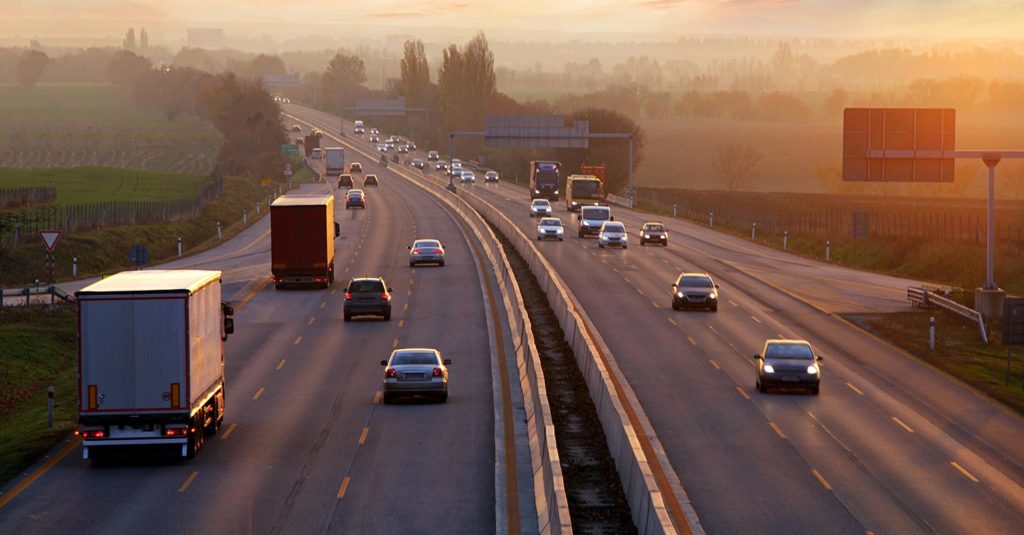Driving a larger vehicle on your Cat B (‘car’) driving licence
Soon it may be possible to drive vans up to 4.25 tonnes maximum authorised mass (mam) on a Category B driving licence – but only if they are alternatively-fuelled.
Currently 3.5 tonnes is the limit for that type of licence. (‘Mam’ is defined as ‘the weight of a vehicle or trailer including the maximum load that can be carried safely when it’s being used on the road.’)
This is all part of the objective of increasing the uptake of low emission vehicles, the reduction in nitrogen dioxide emissions and the plan to make every car and van run with zero emissions by 2050.
A disadvantage of alternatively-fuelled vehicles is that their weight is greater than conventionally fuelled ones because of the technology. As a result, they can only lawfully carry a smaller load which in turn is a disincentive and commercial drawback to using cleaner technology.
So, the Government has proposed and consulted on allowing drivers to drive goods vehicles up to 4.25 tonnes on a Category B licence – in essence these are light commercial vehicles / vans. The response has been very positive so the Government announced on 28 March that it will proceed to seek a five-year derogation (relaxation) from the EU third Driving Licence Directive to allow this to happen. (Germany and France have already secured this for electric vehicles.)
This may help businesses plan their fleet and vehicle acquisition to advance environmentally-friendly goods transport operations.
Alternatively-fuelled vehicles
This relaxation is planned only to apply to the following fuels / vehicles:
- Electricity: (for use by Battery Electric Vehicles (BEV), Range Extended Vehicle (REV), Plug-in Hybrid Electric Vehicles (PHEV))
- Hydrogen: for use by Fuel Cell Electric Vehicles (FCEV)
- Natural gas: Compressed Natural Gas (CNG), Liquefied Natural Gas (LNG) and bio-methane
- Liquefied Petroleum Gas (LPG) / bioLPG.
Trailers
Drivers with a Category B licence would not be permitted to use any trailer under this relaxation beyond their current entitlement. Instead the driver will need a higher licence category. The rules on drawing trailers on Cat B car licences are often misunderstood and misapplied. A driver who has a Category B entitlement may drive a 3500 kilogram (3,5t) vehicle carrying no more than eight passengers plus a driver with a trailer of up to 750 kilograms, i.e. a combination of up to 4250 kilograms or 4.25t. They can also drive a combined weight of car and trailer up to 3500 kilograms, i.e. 2000 kilogram vehicle and 1500 kilogram trailer. (Sometimes drivers unwittingly exceed the threshold by drawing too large a trailer behind a larger vehicle breaking through the 3.5 tonne limit).
In addition, drivers who passed their test before 1 January 1997 and have “C1E (107)” on their licence may drive a vehicle and trailer combination up to a maximum authorised mass of 8250 kilograms.
Operator’s licence
The Government has already taken steps to allow businesses to be exempt from the need for an operator’s licence for alternatively-fuelled goods vehicles up to 4.25 tonnes. From September 2018 new regulations come into force to implement this.
Driver CPC
Drivers of vehicles above 3.5 tonnes that are used commercially require a Driver Certificate of Professional Competence (DCPC) unless otherwise exempt. (In essence these are licence categories C and D and their sub-categories C1, CIE, D1 D1E etc.) Commercial drivers must accrue 35 hours’ training in five year training cycles to retain their Driver Qualification Card. However, the DCPC rules do not apply to Category B licences – so, if the Category B weight threshold is increased to 4.25 tonnes for the car licence the driver will not need the DCPC qualification.
Tags: Alternate fuel, Driver CPC, Driving licence, Lawyers, operators licence, Road, road transport, Solicitor, Solicitors, Tim Ridyard, Traffic
How can we help?
If you have an enquiry or you would like to find out more about our services, why not contact us?

